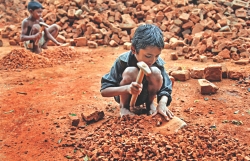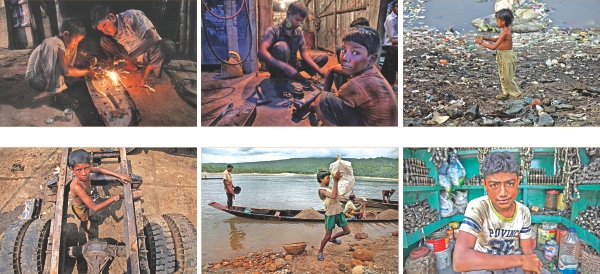
Sharmin Jahan Shuva
Waitress
 |
Sharmin Jahan Shuva, a 19-year-old BBA student at the IBAIS University, and a waitress in Nandos tells the story of her journey. “I have been working here for the last 5 months and to be honest, I am happy to be working here. I have worked at Aarong before but my working hours would always clash with my classes, so I had to look elsewhere for work. After a few days of being without a job, I finally got to know of an opening in Nandos and I applied for it instantly.”
Nandos has a different approach when it comes to hiring employees. Shuva adds, “Before getting hired in Nandos, they make you go through a one-month training on management, how to talk to customers and the proper ways to handle different situations. A very strict rule about Nandos is that they always want young students as their employees. They don't have any discriminating thought behind this; they just want young students to be independent. I also get a lot of flexibility once my exams begin. My shift usually starts at 4 pm and ends at 9 pm. During my exams, they let me leave early so that I can go home and study.”
Shuva also mentions, “This job not only provides for my pocket money, but also lets me gain a lot of experience and learn marketing skills that I am sure, would help me in my future, for I plan to work in big companies in the marketing sector. I want to connect to more people and prove my skills.” Shuva concludes by saying, “Other than just being a waitress I do a lot of other things. I tend to attend a lot of donation programmes and am a part of Transparency International Bangladesh (TIB). With all these experiences, I am positive I can bring a difference to my life and the lives of my country people.”
By Salman Rob

Looking for an Alternative
 |
In the reality of Bangladesh, abolishing child labour is not a solution. These children of ultra-poor families, who are exposed to the harsh realities from the moment they are born, do not need the claim that child labour will be uprooted. Instead what they really need are rights and security. Along with abolishing child labour, the government must establish alternative methods and policies to take care of the families that these children support financially. In addition, the government must also make sure that these children get a proper education and enjoy their childhood. What the government, NGOs and other private companies can do is to make sure that these children, who are practically running the informal, unregistered underground economy, get to grow up in a safe and healthy environment. In spite of all that, if the authorities took out time to ensure that these children do not work in hazardous environments, that they are given gloves and masks while they carry garbage, that they are provided with the knowledge regarding health, sanitation, drugs and sexual health, to provide them with the knowledge and support system to help them protect themselves from harassment and abuse and to make more small local schools for them -- only then can these children be left to be children.
Photos: Mohammad Rakibul Hassan
